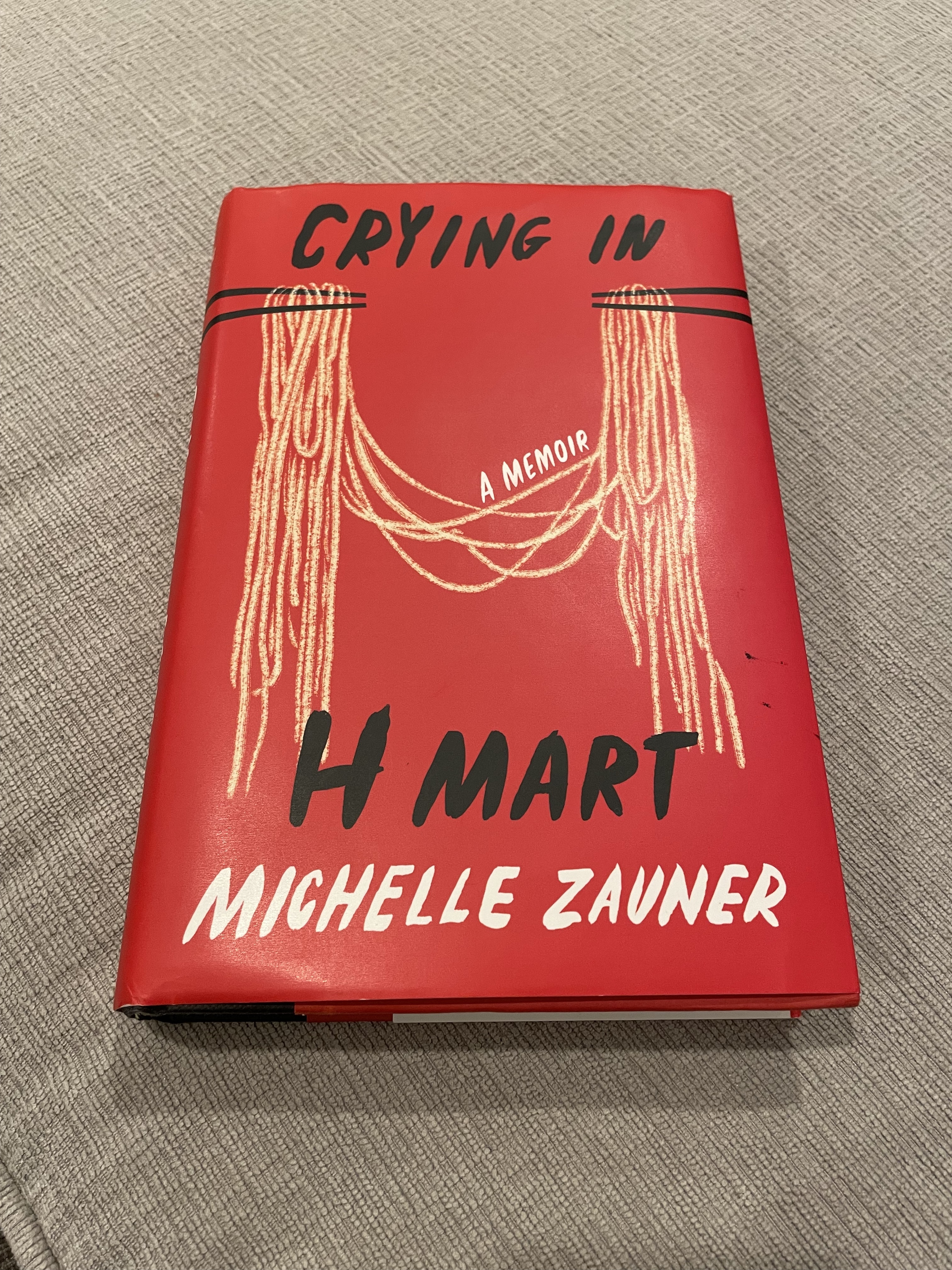Crying In H Mart: A Memoir on Grief, Family, and Food

This book hits hard. Read with a box of kleenex. While Crying In H Mart by Michelle Zauner may resonate most with those experiencing grief or loss, it illustrates for everyone how different aspects of life can serve as vehicles for love. For Zauner, it’s Korean cooking.
When her mother falls ill and passes away from an aggressive form of cancer, Zauner uses the Korean food they bonded over to connect with and remember her. She learns how to perfect jatjuk, for example. It was one of the few foods her mother could withstand during her chemo treatments. Her descriptions of this pine nut porridge, and Korean food generally, are powerful.
“I closed my eyes and spooned the last of the soup into my mouth, picturing the soft mixture coating my mother’s blistered tongue, the warm liquid traveling slowly into my stomach as I tried to savor the aftertaste.”
Crying In H Mart Was Preceded By Japanese Breakfast
Many know Zauner not from her article in The New Yorker or this book, but from her music. Michelle Zauner is Japanese Breakfast. She gained acclaim for her music before her writing gained traction in 2018.
Zauner’s first two albums explored many of the same themes present in Crying In H Mart. From anguish and grief to coping with loss. Psychopomp in particular packs a punch. Now onto her third album, Zauner (aka Japanese Breakfast) has taken on themes of happiness and maximizing joy. Hence the album title, Jubilee.
Having read other reviews of Crying In H Mart, I found that many people already knew of Japanese Breakfast before reading the book. That likely influenced how they consumed Zauner’s writing. I entered Crying In H Mart with a blank slate, not having even heard of her music persona before reading the jacket of the book. It was only after finishing the book that I explored her discography, and came away even more impressed at Zauner’s artistic prowess.
Food Is the Perfect Vehicle For Love
What resonated with me most about Crying In H Mart was not the Korean cooking – which I have yet to master – or the descriptions of H Mart – which I have only patronized a couple times – but the food itself serving as a vehicle for a daughter’s love for her mother. Zauner explains how she was always trying to please her mother; to meet her exceedingly high expectations. She tried to connect with her through food, with strict compliance to her mom’s rule of trying everything once.
I could smell the funky kimchi seeping through the pages. The themes are different from the godmother of food writing, but Zauner’s ability to capture tastes, smells, and textures through her writing is on par. I attribute this in part to Zauner’s upbringing where, as she describes, there was “a reverence for great food and a predisposition to emotional eating.”
Other passages simply made me smile.
“By the age of ten I had learned to break down a full lobster with my bare hands and a nutcracker. I devoured steak tartare, pates, sardines, snails baked in butter and smothered with roasted garlic. I tried raw sea cucumber, abalone, and oysters on the half shell.”
As a new dad who recently quit his job to raise his son, I loved how Zauner described her parent’s approach to food.
“They loved good food, to make it, to seek it, to share it, and I was an honorary guest at their table.”
A Personal, Gripping, and Heavy Memoir
This book is not for everyone. If you are not in the mood for a heavy read that might require kleenex, skip this title. At times, Zauner’s anecdotes and feelings made me feel voyeuristic. As if I was witnessing her personal grief in real time and had not received an invite. The story is so powerfully personal that it occasionally left me uncomfortable.
None of that detracts, however, from the beautiful writing that celebrates Korean culture and food, and the author’s love for her mother. No matter your situation in life, loss will knock on your door eventually. Books like Crying In H Mart help us make sense of these hard periods. This book in particular gives hope that even when our loved ones leave us, they are not lost. We can celebrate them in our own unique ways, whether through Korean food or otherwise.


